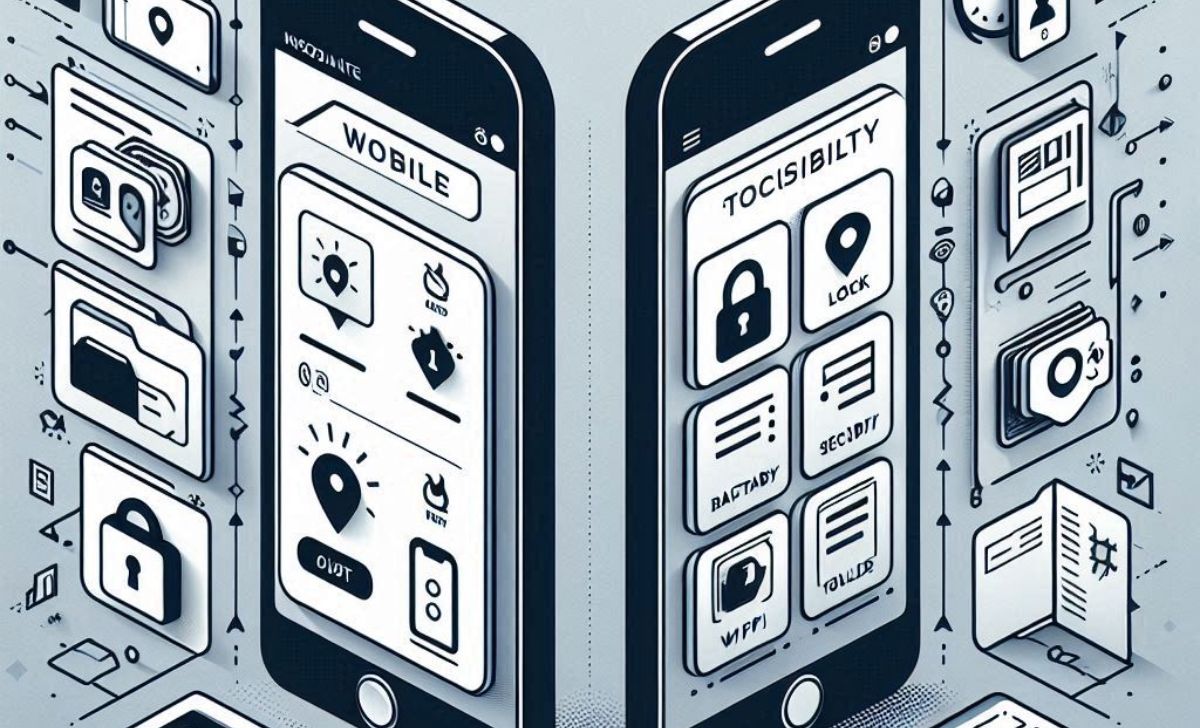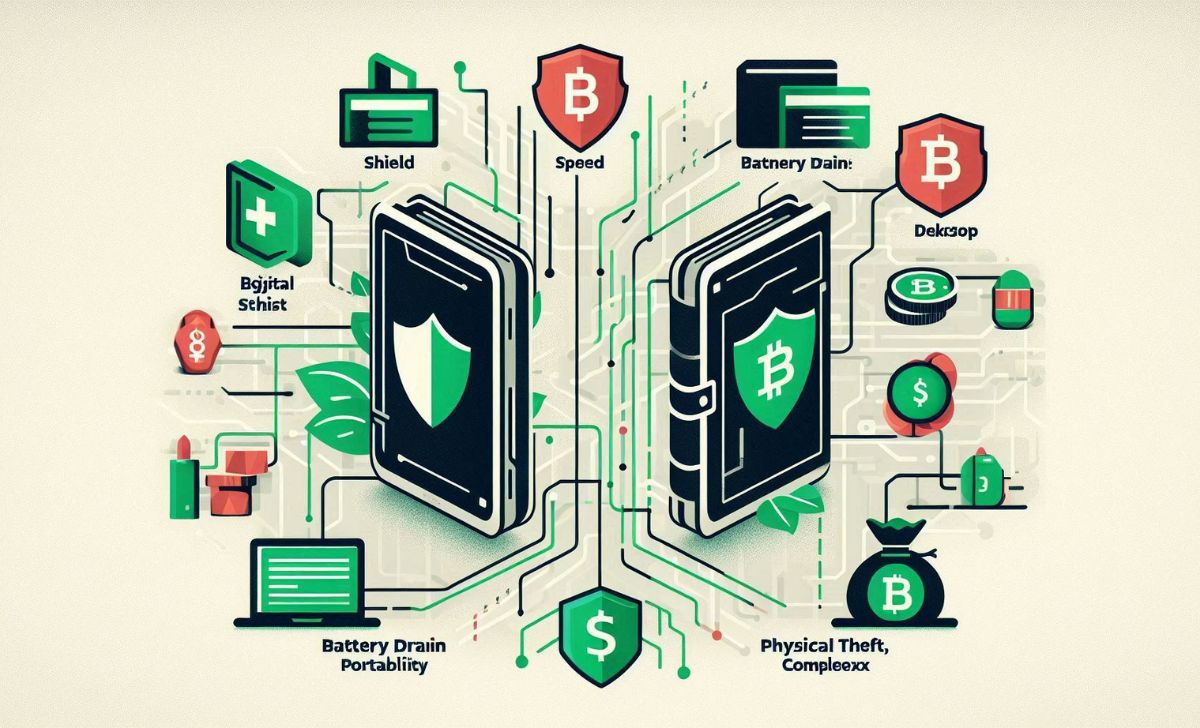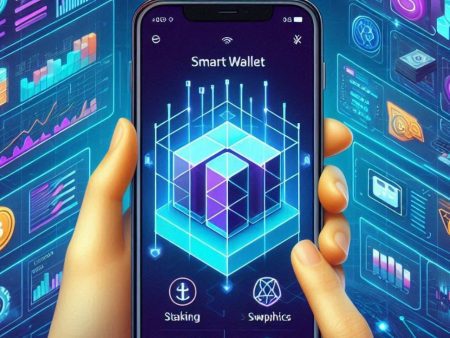Mobile and desktop crypto wallets, each offering distinct convenience and security features, are gaining increasing attention from users. You might be wondering about the differences, their pros and cons, and which option best fits your needs. This article from TopCoin9 will help you understand more clearly.
What Are Crypto Wallets?

Before diving into the comparison of mobile and desktop crypto wallets, it’s essential to understand what a crypto wallet actually is. A crypto wallet is a digital tool that allows you to store, send, and receive cryptocurrencies such as Bitcoin, Ethereum, and others. These wallets manage your private and public keys, which are crucial for accessing and securing your digital funds.
In particular, you’ll often hear the distinction between a custodial vs non-custodial wallet, which defines whether you hold full control over your private keys or trust a third party to do so. Understanding this difference is vital in choosing a wallet that matches your risk tolerance and independence level.
Crypto wallets come in various types, but mobile and desktop crypto wallets are among the most widely used due to their accessibility and functionality. Whether you’re a beginner or an experienced investor, choosing the right type of wallet plays a key role in managing your assets efficiently.
Now that you know what crypto wallets do, let’s explore how mobile and desktop crypto wallets are different in their structure and use cases.
Overview of Mobile and Desktop Crypto Wallets

To truly understand the desktop vs mobile crypto wallet difference, we need to explore each option individually.
Mobile Wallets
Mobile wallets are applications you install directly on your smartphone, allowing you to manage crypto anytime, anywhere. These wallets are perfect for users who need real-time access, whether it’s sending crypto to a friend or interacting with decentralized applications (dApps). For many users, mobile and desktop crypto wallets start with mobile for its unmatched convenience.
For advanced users or teams managing collective funds, mobile wallets with support for Squads multisig wallet functionality can enhance group decision-making and security.
However, for those who prioritize control and tighter security measures, desktop wallets offer a compelling alternative worth exploring.
Desktop Wallets
In contrast, desktop wallets are installed on personal computers or laptops. These wallets offer more comprehensive control features and higher levels of security, especially when used on offline devices. For those concerned about the desktop vs mobile crypto wallet difference in terms of safety, desktop options usually come out on top.
Some users even go one step further by using a bitcoin paper wallet, a form of offline cold storage that eliminates any online attack vectors altogether. These are often generated and stored completely offline, offering maximum protection.
With a general understanding of both wallet types, it’s time to compare them side-by-side to highlight the real differences.
Key Differences Between Mobile and Desktop Wallets

Understanding the desktop vs mobile crypto wallet difference involves examining how they function in different environments and serve varying user needs.
- Accessibility: Mobile wallets are accessible via smartphones and ideal for on-the-go transactions. Desktop wallets, by contrast, are more suitable for users operating from a fixed location.
- Security: One of the most talked-about aspects of mobile and desktop crypto wallets is security. Desktop wallets tend to be safer, especially if used on clean, offline systems.
- Functionality: Mobile wallets typically provide basic features like sending and receiving crypto, while desktop wallets offer more advanced tools such as multi-signature support and network fee customization.
- User Experience: While mobile wallets emphasize simplicity, desktop wallets offer greater control—highlighting a key aspect of the desktop vs mobile crypto wallet difference.
With these key points in mind, we’re ready to explore the strengths and weaknesses of each wallet type.
Pros and Cons of Each Wallet Type

Now that we understand the desktop vs mobile crypto wallet difference, let’s dive into the practical advantages and disadvantages of each.
Mobile Wallet – Pros and Cons
Mobile wallets are often the first experience users have with mobile and desktop crypto wallets. Their portability and simplicity make them ideal for daily use.
Pros:
- Easy to install and use
- Enables fast transactions on the go
- Integrates easily with dApps and QR scanning
Cons:
- Higher risk of loss or theft if the phone is compromised
- Less secure than desktop options in most cases
Desktop Wallet – Pros and Cons
Desktop wallets are the go-to choice for those prioritizing security. They’re often part of a larger crypto storage strategy.
Pros:
- Greater security when used offline (cold storage)
- Advanced features for experienced users
- Full control over private keys
Cons:
- Limited portability
- Vulnerable if the computer is infected with malware
Now that we’ve explored the strengths and limitations of both, let’s help you decide which is better suited to your crypto journey.
Which One Should You Choose?
Choosing between mobile and desktop crypto wallets depends on your personal preferences and usage habits. Mobile wallets offer convenience and on-the-go access, perfect for active users. In contrast, desktop wallets provide enhanced security and control, making them ideal for long-term holders or larger investments.
When evaluating the desktop vs mobile crypto wallet difference, think about how often you trade, how much crypto you store, and your security needs. Many users combine both for flexibility and safety, making the most of each option’s strengths.
Whether you choose a mobile or desktop crypto wallet, understanding their differences is key to managing your digital assets securely. By evaluating your priorities such as convenience, control, or security, you’ll find the wallet that best suits your needs. For more expert insights and trusted crypto guides, visit TopCoin9 today.

As a certified blockchain security expert with over 8 years in cybersecurity, James Anderson specializes in auditing smart contracts and identifying vulnerabilities in DeFi protocols. His expertise ensures that TopCoin9 delivers reliable insights on blockchain security and risk management.
Email: [email protected]












